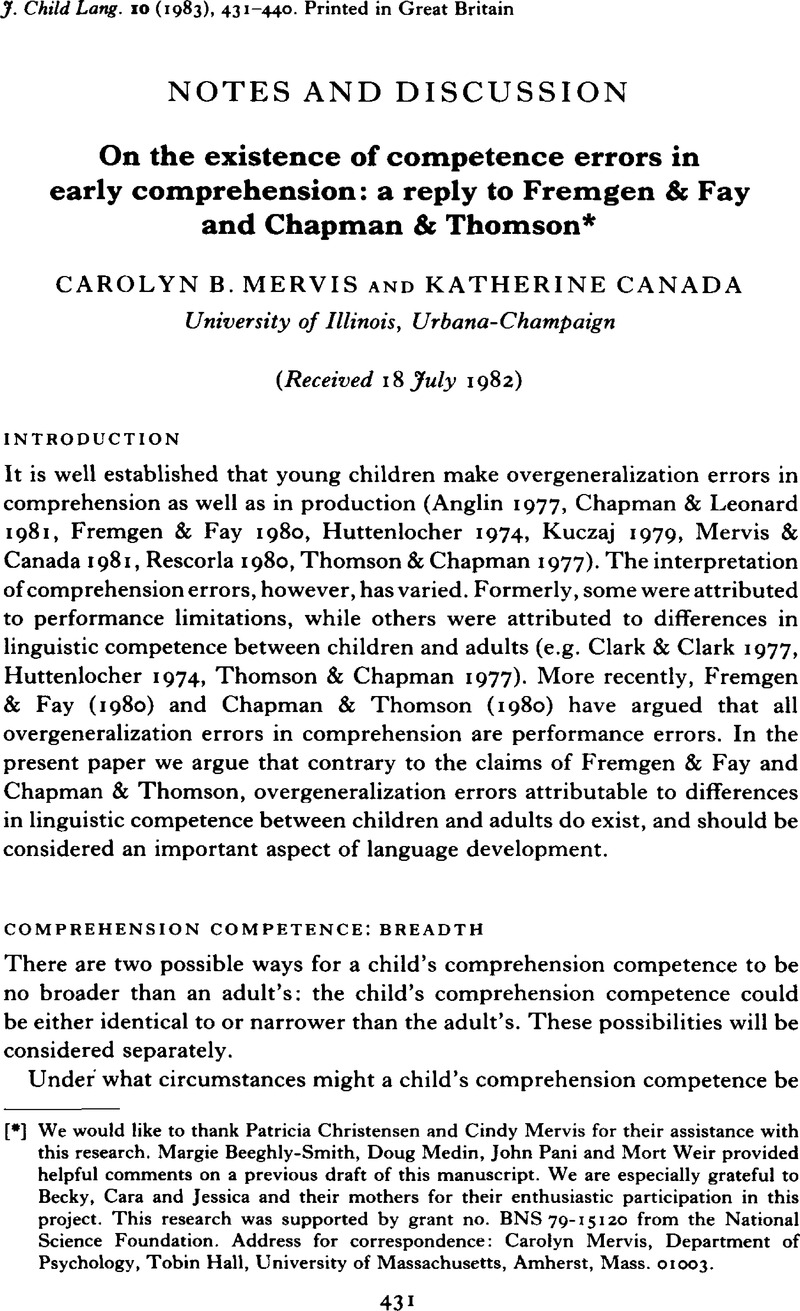Crossref Citations
This article has been cited by the following publications. This list is generated based on data provided by
Crossref.
Mervis, Carolyn B.
1983.
Acquisition of a lexicon.
Contemporary Educational Psychology,
Vol. 8,
Issue. 3,
p.
210.
Kuczaj, Stan A.
1986.
The Development of Word Meaning.
p.
99.
Adams, Alison K.
and
Bullock, Daniel
1986.
The Development of Word Meaning.
p.
155.
Behrend, Douglas A.
1988.
Overextensions in early language comprehension: evidence from a signal detection approach.
Journal of Child Language,
Vol. 15,
Issue. 1,
p.
63.
Kegel, Gerd
1988.
Sprechwissenschaft & Psycholinguistik 2.
p.
97.
Chapman, Kathy L.
and
Mervis, Carolyn B.
1989.
Patterns of object–name extension in production.
Journal of Child Language,
Vol. 16,
Issue. 3,
p.
561.
Schyns, Philippe G.
1991.
A Modular Neural Network Model of Concept Acquisition.
Cognitive Science,
Vol. 15,
Issue. 4,
p.
461.
Naigles, Letitia G.
and
Gelman, Susan A.
1995.
Overextensions in comprehension and production revisited: preferential-looking in a study of dog, cat, and cow.
Journal of Child Language,
Vol. 22,
Issue. 1,
p.
19.
Gershkoff-Stowe, Lisa
2001.
The Course of Children's Naming Errors in Early Word Learning.
Journal of Cognition and Development,
Vol. 2,
Issue. 2,
p.
131.
Poulin‐Dubois, Diane
and
Sissons, Mary E.
2002.
Is this still called a dog? 18‐month‐olds' generalization of familiar labels to unusual objects.
Infant and Child Development,
Vol. 11,
Issue. 1,
p.
57.
FRIEND, MARGARET
and
KEPLINGER, MELANIE
2008.
Reliability and validity of the Computerized Comprehension Task (CCT): data from American English and Mexican Spanish infants.
Journal of Child Language,
Vol. 35,
Issue. 1,
p.
77.
Ferreira Pinto, Renato
and
Xu, Yang
2021.
A computational theory of child overextension.
Cognition,
Vol. 206,
Issue. ,
p.
104472.



